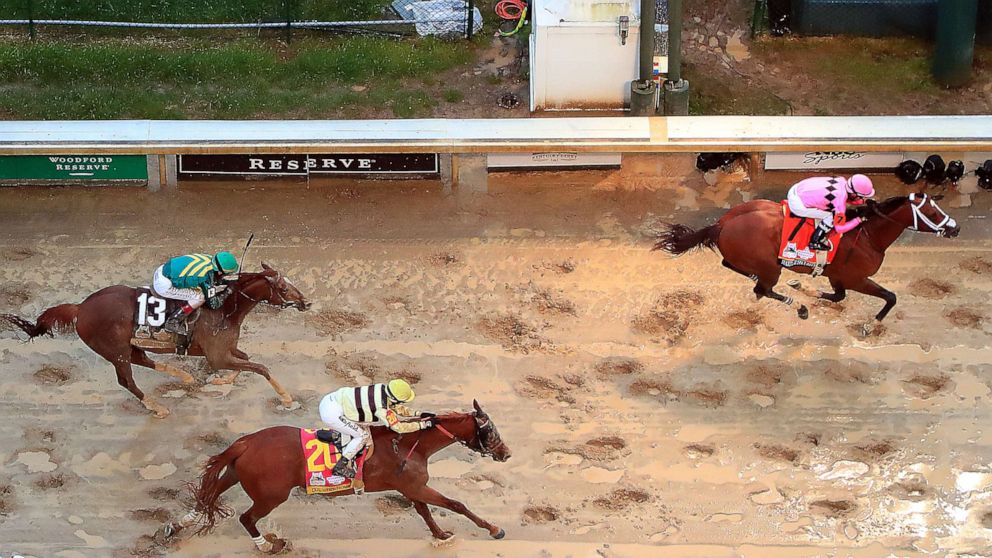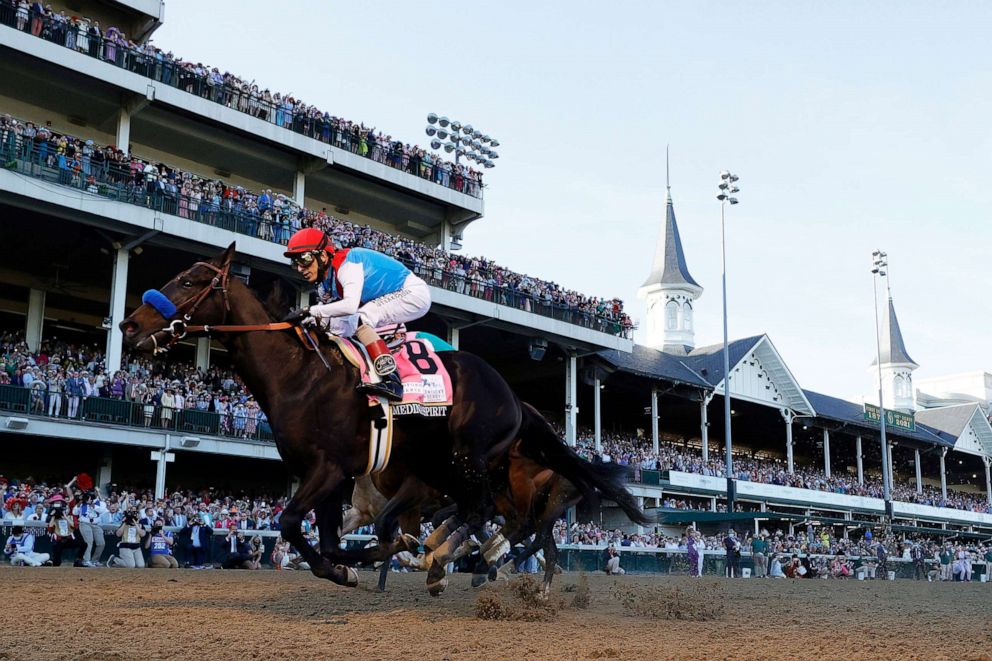Former salesman pleads guilty to role in doping racehorses
He faces up to three years in prison and forfeited $3 million.
A former sales representative for a Kentucky company that marketed a performance-enhancing drug used with racehorses pleaded guilty Friday to a criminal charge stemming from what federal prosecutors in New York called a "widespread, corrupt" doping scheme.
Michael Kegley conspired with trainers, veterinarians and others to make misbranded drugs, secretly administer them to racehorses and cheat bettors in the $100 billion global racehorse industry, prosecutors said.
According to the indictment, Kegley marketed SGF-1000, the same adulterated and misbranded performance-enhancing drug that Maximum Security was given when he briefly placed first in the 2019 Kentucky Derby before being disqualified for interference.

The feds intercepted calls during which Kegley acknowledged he did not know the precise contents of SGF-1000, the indictment said. Kegley also was overheard explaining that trainers could be charged with felonies in the U.S. for doping horses.
"We can even put on the box, you know, 'dietary supplement for equine,'" the indictment quoted Kegley as saying. "That way it's not, no one even has to question, if it's FDA approved or not."
Kegley pleaded guilty to drug adulteration and misbranding of drugs. He faces a maximum sentence of three years in prison and agreed to forfeit more than $3 million.

SGF-1000 was not approved, was mislabeled and distributed without a valid prescription, said Sarah Mortazavi, an assistant U.S. attorney.
"I knew that there was no medical description for those products," Kegley said at a plea hearing on Friday, adding that he "knew that the product was not manufactured in an FDA facility or approved by the FDA."
"Did you know that the trainers intended to use these products on thoroughbred racehorses?" asked Judge Mary Kay Vyskocil.
"Yes, your honor," Kegley replied.




